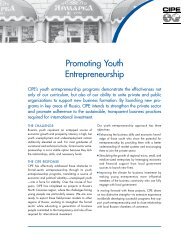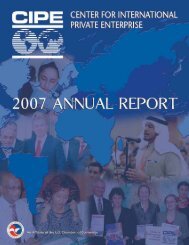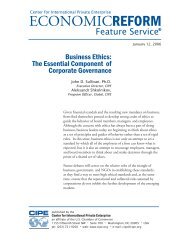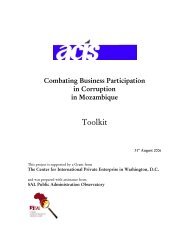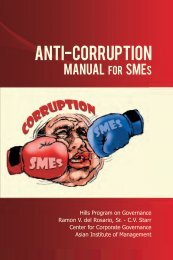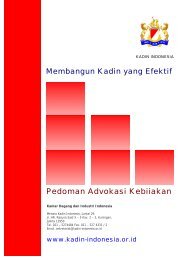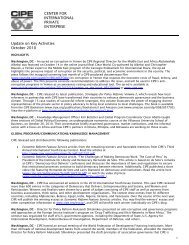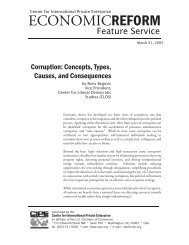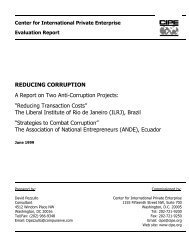Responsible Business Guide: A Toolkit for Winning Companies
Responsible Business Guide: A Toolkit for Winning Companies
Responsible Business Guide: A Toolkit for Winning Companies
You also want an ePaper? Increase the reach of your titles
YUMPU automatically turns print PDFs into web optimized ePapers that Google loves.
RBG<br />
<strong>Responsible</strong> <strong>Business</strong> <strong>Guide</strong>: A <strong>Toolkit</strong> <strong>for</strong> <strong>Winning</strong> <strong>Companies</strong><br />
relevance and impact of the company’s behavior, feeding it all the way up through the<br />
same process of engagement, to be checked against the core values.<br />
As a result, the company is keyed in to its impact in the eyes of key stakeholders, and if it<br />
remains responsive, it can continue fine-tuning its business behavior to gain an ideal “tradeoff”<br />
between its business values and stakeholder expectations. In quest of this state of<br />
optimal balance, the company generates responsible profits without adversely impacting<br />
its environment and keeps stakeholders satisfied, pushing up growth as a spiral of virtue.<br />
The six pillars of the RBF are the areas of focus in this model. Each must be addressed<br />
separately, yet simultaneously. This journey has four practical milestones in each pillar –<br />
Perception, Preparation, Practice, and Per<strong>for</strong>mance.<br />
Responsibility Level I: Perception<br />
The road to responsible business starts from Perception, where a company reflects on its<br />
own values and understands how these values relate to its business goals. All businesses<br />
exist to make a profit. It is a company’s values that determine the ethical point of reference<br />
<strong>for</strong> business decisions that affect the creation and delivery of particular products or services<br />
to customers, including determining what is a fair profit. A number of values derived from<br />
culture and tradition are subjective. However, commonly held human values such as<br />
honesty, integrity, and dependability equally pervade the realm of business transactions.<br />
Altruism is another value, which though not integral to such transactions is often linked<br />
to business behavior.<br />
Responsibility Per<strong>for</strong>mance Level II: Preparation<br />
With this relationship clear, the next step involves Preparation <strong>for</strong> action that demonstrates<br />
a company’s responsible behavior to others. This typically involves documenting values<br />
in the shape of policies and operation-level mechanisms, developing awareness and<br />
implementation capacity among company personnel, and installing appropriate reporting<br />
communication systems <strong>for</strong> stakeholders. Evidence shows this to be perhaps the most<br />
difficult step <strong>for</strong> in<strong>for</strong>mally organized businesses, such as family-run enterprises, and may<br />
require outside support. However, once written down, company values, policies, and<br />
procedures are easier to integrate into day-to-day management.<br />
<strong>Responsible</strong> <strong>Business</strong> Initiative 51



